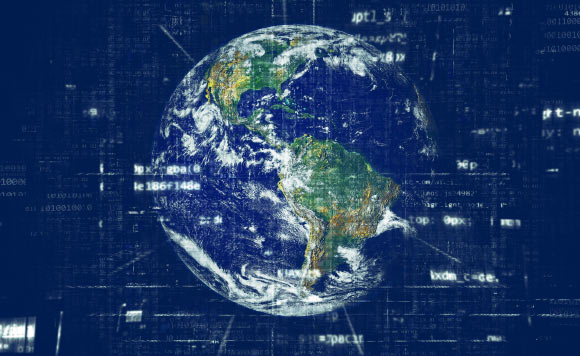Internet access is a moral human right that requires that everyone has unmonitored and uncensored access to this global medium, which should be publicly provided free of charge for those unable to afford it, according to a paper authored by University of Birmingham’s Dr. Merten Reglitz.

Internet access should be considered a universal entitlement because it is necessary for people to be able to lead minimally decent lives. Image credit: Pete Linforth.
Many people in poorer parts of the world are still without internet access, but their number is decreasing as technology becomes cheaper. However, internet expansion has slowed in recent years, suggesting universal access will not occur without intentional promotion.
UN’s International Telecommunication Union estimated that, by the end of 2018, 51.4% of the world’s population of 7 billion people had access to the internet.
“Internet access is no luxury, but instead a moral human right and everyone should have unmonitored and uncensored access to this global medium – provided free of charge for those unable to afford it,” said Dr. Reglitz, a lecturer in global ethics in the Department of Philosophy at the University of Birmingham.
“Without such access, many people lack a meaningful way to influence and hold accountable supranational rule-makers and institutions. These individuals simply don’t have a say in the making of the rules they must obey and which shape their life chances.”
“Exercising free speech and obtaining information was now heavily dependent on having internet access. Much of today’s political debate took place online and politically relevant information is shared on the internet — meaning the relative value these freedoms held for people ‘offline’ had decreased,” he added.
Dr. Reglitz defines ‘moral human rights’ as based on universal interests essential for a ‘minimally decent life.’ They must also be of such fundamental importance that if a nation is unwilling or unable to uphold these rights, the international community must step in.
The study points to a number of important political institutions which have committed to ensuring universal access for their populations, convinced that this goal is affordable:
(i) the Indian state of Kerala has declared universal internet access a human right and aims to provide it for its 35 million people by 2019;
(ii) the European Union has launched the WiFi4EU initiative to provide ‘every European village and city with free wireless internet access around main centers of public life by 2020;’
(iii) global internet access is part of the UN Sustainable Development Goals, with the UN demanding states help to deliver universal internet access in developing nations.
“Universal internet access need not cost the earth — accessing politically important opportunities such as blogging, obtaining information, joining virtual groups, or sending and receiving emails does not require the latest information technology,” Dr. Reglitz said.
“Web-capable phones allow people to access these services and public internet provision, such as public libraries, can help get people online where individual domestic access is initially too expensive.”
His paper was published in the Journal of Applied Philosophy.
_____
Merten Reglitz. The Human Right to Free Internet Access. Journal of Applied Philosophy, published online November 11, 2019; doi: 10.1111/japp.12395







